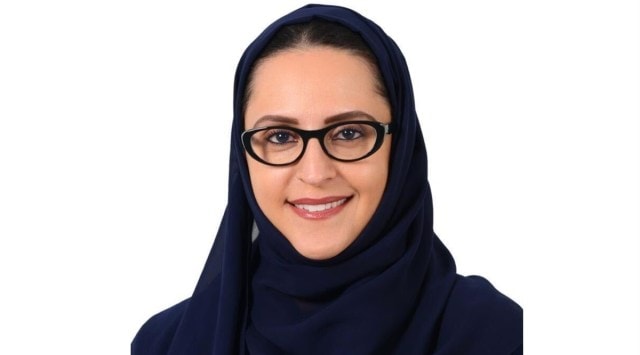THE GENDER equality-related paragraph in the G20 New Delhi Leaders’ Declaration is in alignment with the Saudi 2030 Vision that has specific targets for gender inclusion and empowerment, Dr Miznah Alomair, Head of Delegation, W20 Saudi told The Indian Express Sunday.
Dr Alomair, who has extensive teaching experience and is a published scholar in the field of leadership studies with focus on women leadership, youth leadership, and peace leadership, was recently appointed to head the Saudi delegation for the W20 engagement group.

W20 is the official G20 engagement group focused on gender equity. Its primary objective is to ensure that gender considerations are mainstreamed into G20 discussions and translated into the G20 Leaders’ Declaration as policies and commitments that foster gender equality and women’s economic empowerment.
The G20 declaration underlined enhancing economic and social empowerment of women, bridging the gender digital divide, driving gender inclusive climate action, securing women’s food security, nutrition and well-being and creation of a Working Group on the Empowerment of Women.
Dr Alomair said that since Saudi Arabia’s G20 presidency in 2020, women’s inclusion has been central to the W20 group. “Given the presidency was during Covid-19 pandemic, it was vital for the W20 Chair, Dr Thoraya Obaid, to release a statement emphasising on the importance of G20 leaders to recognise the role of women in fighting the pandemic and highlighting the significance of women’s inclusion in national and global Covid-19 preparedness and response policy,” she said.
Dr Obaid, a Saudi politician, was the first from the country to head a UN agency.
Dr Alomair further said that since 2018, historical reforms have taken place in Saudi Arabia in favour of women’s empowerment. “The amendments to laws and regulations, such as women’s driving, women’s protection under the anti-harassment law, equal opportunity in the workplace, have significantly impacted women’s lives and improved their access to their rights,” she said, adding that the reforms have had a profound impact on the economic and social empowerment of women.
Story continues below this ad
Stating that there will always be challenges to resolve when working to transform a nation, she said the Saudi government is constantly working to transform the country through its 2030 Vision, which has specific targets to women’s inclusion and empowerment.
“The progress achieved in the past few years occurred at a rapid rate. Yet, we wholeheartedly believe there is more to be done for women’s empowerment and advancement,” she said.
She also said the participation of women in the Saudi government has increased in recent years. “For example, more women are being appointed in leadership roles within the government. Their qualifications and competencies as leaders are central to achieving the targets of Saudi’s 2030 Vision,” she said.
She said that since 2004, education has been compulsory for girls. Stating that Saudi women make up approximately 50% of higher education students, she said providing scholarships for women and investing in infrastructure of the education system offered opportunities for more women to pursue post-secondary education.
Story continues below this ad
On the constraints, if any, faced by Saudi women government officials in adjusting to local customs while travelling to western countries, she said adapting to changes is an expected quality in government officials, let alone in leaders, whether it be men or women.
About the dress code, she said it should not be viewed as a constraint but rather as part of the Saudi and Muslim identity.









